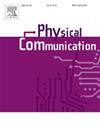Federated Deep Reinforcement Learning-based task offloading strategy with game theory in vehicular edge computing
IF 2.2
4区 计算机科学
Q3 ENGINEERING, ELECTRICAL & ELECTRONIC
引用次数: 0
Abstract
The increasing complexity of Internet of Vehicles (IOV) applications poses significant challenges to vehicular onboard computing resources, leading to heightened latency and energy consumption. Task offloading techniques in vehicular edge computing (VEC) offer a promising solution by transferring computational tasks to distributed edge servers with enhanced processing power. However, in highly dynamic VEC scenarios, multiple vehicles tend to offload tasks concurrently, exacerbating system challenges. An inappropriate offloading strategy can result not only in increased system latency but also in severe privacy breaches. To address these issues, a federated deep reinforcement learning-based task offloading strategy with game theory (FDRLGT) is proposed to minimize total system delay and protect user privacy. Specifically, Deep Reinforcement Learning (DRL) is used to train a local offloading strategy model with local data, while Federated Learning (FL) aggregates local model parameters instead of raw data to ensure privacy. In multi-vehicle simultaneous task offloading contexts, we address the problem of policy homogeneity in FDRL, which can lead to locally suboptimal solutions. To overcome this, we design a game theory model integrated into the FDRL algorithm to enhance optimization. Simulation results demonstrate that the proposed FDRLGT algorithm enhances system efficiency, ensures privacy, and effectively reduces total system delay compared to other baseline algorithms.
基于博弈论的基于深度强化学习的车辆边缘计算任务卸载策略
随着车联网(IOV)应用日益复杂,车载计算资源面临巨大挑战,导致延迟和能耗增加。车辆边缘计算(VEC)中的任务卸载技术通过将计算任务转移到具有增强处理能力的分布式边缘服务器上,提供了一种很有前途的解决方案。然而,在高度动态的VEC场景中,多辆车往往会同时卸载任务,从而加剧了系统的挑战。不适当的卸载策略不仅会增加系统延迟,还会导致严重的隐私泄露。为了解决这些问题,提出了一种基于博弈论的联邦深度强化学习任务卸载策略(FDRLGT),以最小化系统总延迟并保护用户隐私。具体来说,深度强化学习(DRL)用于使用本地数据训练本地卸载策略模型,而联邦学习(FL)则聚合本地模型参数而不是原始数据以确保隐私。在多车同步任务卸载环境下,我们解决了FDRL中的策略同质性问题,该问题可能导致局部次优解。为了克服这个问题,我们设计了一个集成到FDRL算法中的博弈论模型来增强优化。仿真结果表明,与其他基准算法相比,FDRLGT算法提高了系统效率,保证了隐私,有效降低了系统总时延。
本文章由计算机程序翻译,如有差异,请以英文原文为准。
求助全文
约1分钟内获得全文
求助全文
来源期刊

Physical Communication
ENGINEERING, ELECTRICAL & ELECTRONICTELECO-TELECOMMUNICATIONS
CiteScore
5.00
自引率
9.10%
发文量
212
审稿时长
55 days
期刊介绍:
PHYCOM: Physical Communication is an international and archival journal providing complete coverage of all topics of interest to those involved in all aspects of physical layer communications. Theoretical research contributions presenting new techniques, concepts or analyses, applied contributions reporting on experiences and experiments, and tutorials are published.
Topics of interest include but are not limited to:
Physical layer issues of Wireless Local Area Networks, WiMAX, Wireless Mesh Networks, Sensor and Ad Hoc Networks, PCS Systems; Radio access protocols and algorithms for the physical layer; Spread Spectrum Communications; Channel Modeling; Detection and Estimation; Modulation and Coding; Multiplexing and Carrier Techniques; Broadband Wireless Communications; Wireless Personal Communications; Multi-user Detection; Signal Separation and Interference rejection: Multimedia Communications over Wireless; DSP Applications to Wireless Systems; Experimental and Prototype Results; Multiple Access Techniques; Space-time Processing; Synchronization Techniques; Error Control Techniques; Cryptography; Software Radios; Tracking; Resource Allocation and Inference Management; Multi-rate and Multi-carrier Communications; Cross layer Design and Optimization; Propagation and Channel Characterization; OFDM Systems; MIMO Systems; Ultra-Wideband Communications; Cognitive Radio System Architectures; Platforms and Hardware Implementations for the Support of Cognitive, Radio Systems; Cognitive Radio Resource Management and Dynamic Spectrum Sharing.
 求助内容:
求助内容: 应助结果提醒方式:
应助结果提醒方式:


